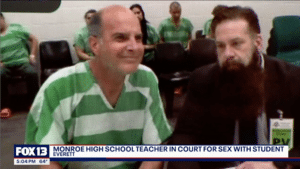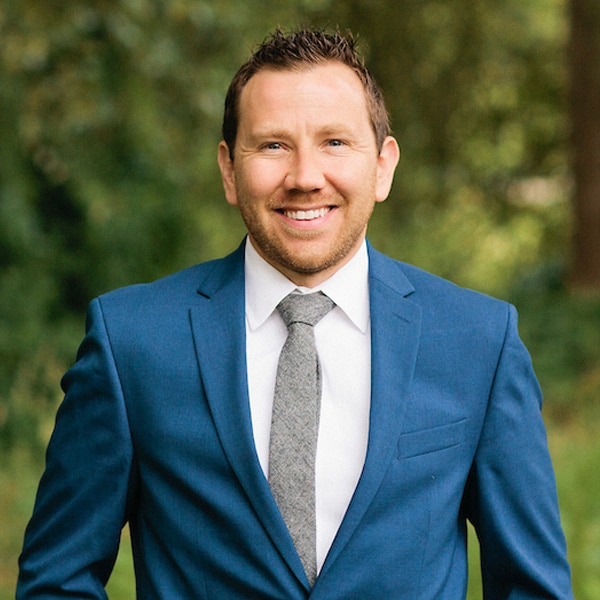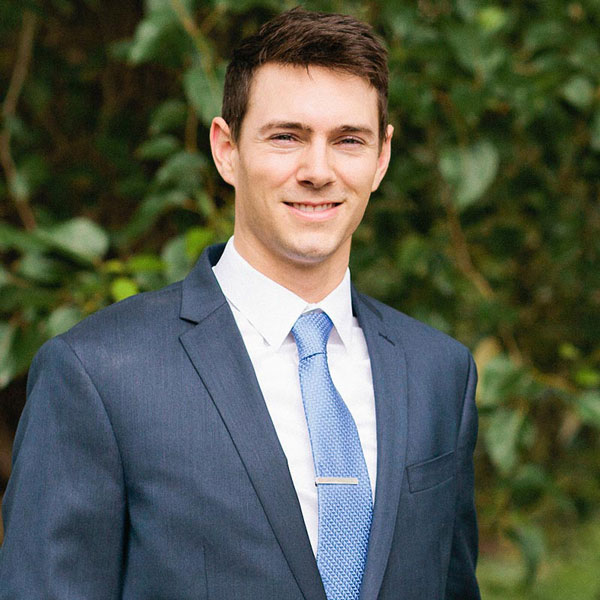Giles Stanton
Monroe High School English Teacher Accused Of Sexual Misconduct With A Minor
Monroe High School
Students Are Coming Forward
Were you, or your child, a student of English Teacher Giles Stanton?
Monroe High School AP English Teacher Arrested for Sexual Misconduct
After a former student came forward, Giles Stanton, an English teacher at Monroe High School, was arrested on two counts of sexual misconduct with a minor. Following the charges, information has emerged strongly suggesting Mr. Stanton may have engaged in this behavior with other students.
Given their authority, teachers must maintain clear physical boundaries. Student sexual abuse comes in various forms:
- Physical: Inappropriate touching, groping or other physical contact.
- Verbal: Sexual comments, jokes or propositions made to a student.
- Visual: Exposing oneself, or asking a student to expose themselves.
Some examples of actions that could constitute abuse:
- Digital communications with explicit pictures or messages
- Jokes or questions sexual in nature
- Sharing pictures of sexual nature
- Hugging
- Touching/grabbing
- Massages
- Assistance stretching
- Rides in their personal vehicle
- Meetings outside of school
If you were a student of Giles Stanton, or your child was a student of his, and you have any questions about your experience, we strongly encourage you to contact our legal team.
Washington Law Center has, and will continue, to fight for victims against any individual, entity or agency. Not all firms have the resources to pursue these claims. We do.

Monroe High School Teacher, Giles Stanton, Sexual Misconduct Case Details
Monroe High School – Giles Stanton Case Details
Giles Stanton, a 53-year-old Monroe High School teacher, is being held in Snohomish County Jail for two counts of sexual misconduct with a minor. Investigations began after a student came forward and has since revealed multiple incidents of inappropriate relationships with both current and former students. He was finally placed on administrative leave in February 2024 and arrested by the Monroe Police Department on May 25, 2024. Detectives believe the teacher has a history of sexual misconduct with students, dating back several years, with evidence including letters and hotel stays. At this time they believe there are more victims who have yet to come forward.
Read or Watch more about this here:
FOX13 – Monroe HS teacher arrested, suspected of sexually assaulting student in 2017
Herald – Monroe High teacher arrested, accused of sexual misconduct with student
KOMO – Monroe High School teacher arrested over alleged sexual misconduct with student
KING5 – Monroe High School teacher arrested for alleged sexual misconduct with a minor
Free Case Review with an Abuse Attorney
We’re here for you and ready to help.
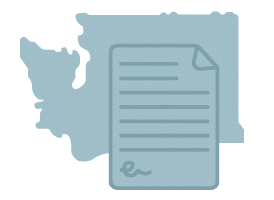
We’ve Recovered Millions For Victims of Sexual Abuse
FAQ
Student Sexual Abuse Attorney FAQs
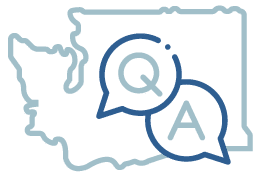
Was I sexually abused?
It’s never too late to come forward and seek guidance from a trusted legal professional. You are not alone. Our attorneys have represented individuals just like you who were also wondering if they had a case because the sexual abuse happened so long ago. Don’t wait another day, contact the experienced sexual abuse lawyers at Washington Law Center.
VIDEO TRANSCRIPT: Was I Sexually Abused?
ATTORNEY SARA SHEIKH: Nearly any form of inappropriate of sexual conduct perpetuated against a minor can provide for a cause of action in Washington. The legislature allows minors to sue for many forms of childhood sexual abuse including molestation, sexual misconduct which could include sexual touching or rubbing, indecent liberties, voyeurism, and, of course, any form of rape. We believe victims deserve justice for all forms of childhood sexual abuse.
There is no one-size-fits-all type of abuse. Many victims are just groomed and then convinced to participate in sexual misconduct. These victims tend to believe they’re not victims at all. Nothing could be further from the truth. Our attorneys want to hear your story and will provide you safe space to talk. We want to know what has happened, no matter how long ago. We want to pursue justice for you.
Can Washington Law Center help with student sexual abuse?
Washington Law Center is a pioneer in childhood sexual abuse litigation in the state of Washington. Our attorneys have filed claims on behalf of minors who were sexually abused in settings ranging from schools, churches, and sporting events, also in situations where there was failure to report suspected abuse.
How common is child sex abuse in schools?
According to the National Children’s Alliance 600,000 children are abused in the U.S each year. A Washington State Healthy Youth Survey reports, that nearly 1 in 8 eighth graders and 1 in 5 high school seniors reported unwanted sexual contact. Sadly, this is more common than we like to think. Please know that you are not alone and more importantly, you did nothing wrong.
What is the law surrounding sexual abuse in schools?
Are you trying to understand the law as it relates to sexual abuse in schools? Sexual Abuse Attorney Ashton Dennis explains the basics including who is responsible, who can be held liable, and how to handle sexual abuse that occurs in a school.
Video Transcript: Why Seek Relief Now?
ATTORNEY ASHTON DENNIS: When our children are at schools, the schools step into the position of the parents.
It’s a Latin term, “in loco parentis,” that they take on that role of being the parents. We expect schools to be vetting their teachers, we expect them to have policies related to relationships, and we expect schools to have the appropriate culture of oversight.
This means that it’s not just looking away or dismissing a teacher as just a bit goofy.
No, we expect our schools to be a place where our students are safe. We expect them to be vigilant, to be looking out for our kids’ best interests.
In Washington, there are two legal theories or ways schools can be held liable for the sexual abuse of students. The first and most common is negligence. Did the school fail to adhere to the standard of care? Were they being reasonable?
That specifically comes down to two different things: number one, did they have notice? Were there things that they knew about that they should have acted on? Did they know that this person had a past that shouldn’t have been overlooked? Were they properly vetted? Were they there when they were supposed to be there and interacting with the students they were supposed to be interacting with?
Failing to adhere to the standard of care, failing to be reasonable, failing to protect our children, all of those things can lead to a successful claim of negligence. Beyond negligence, schools can also be held liable for discrimination, for sexual harassment, which includes sexual abuse.
In 2020, the Supreme Court of Washington unanimously agreed that if students are abused in schools, that equates to sexual discrimination, which in turn is a claim for discrimination where you can recover all of your damages. That means attorney’s fees, that means costs incurred.
In Washington, you can be held liable for negligence, which is a failure of policy, and also be held liable for discrimination, which is a completely different standard and opens up many more remedies for victims. The difference between a negligence claim and a discrimination claim is what you’re required to prove. In a negligence claim, a school has to have notice or a bad policy. When it comes to a discrimination claim, it’s completely different in both what you have to prove and also the remedies available.
So when the Supreme Court said yes, sexual harassment or sexual abuse of children equals discrimination, what they were saying is that schools are liable for the conduct of their employees in no different way than if a truck driver was out driving for an employer and they hit and hurt somebody; we would say that that employer is liable. The same now applies, fortunately, to schools.
If a student is being sexually harassed or sexually abused, they are strictly liable, and they have a right to a remedy of both their damages, their attorney’s fees, and the costs, which is different than what you may get in a negligence claim. The reason that’s so important is that the Supreme Court says, “You, School, are acting as the parents. You need to implement proper policies, you need to implement proper vetting, proper protocol to protect these students, and if you don’t and children are abused, you’re responsible.
We’re not going to put that burden on the parents to prove different elements. You’re liable just as any other employer would be liable in Washington.
How long do sexual abuse claims take?
Video Transcript:
ATTORNEY SARA SHEIKH:
We want to commend you on taking this step. You may have been living with this for years or even decades, and we know that coming forward is not easy. You may not have disclosed your abuse to your family or your friends, and that’s okay. You may be afraid of your abuser or the institution that failed to protect you, and that’s okay. You may not remember every detail, and that’s okay. You may have questions on how the process works, and that’s okay. You may have never told a soul about your abuse as a child, and that’s okay.
The first step is reaching out. We can have a phone consultation if that’s most comfortable for you. We can meet in person, and we most certainly have the ability to meet you in a virtual setting. Do not expect your first call with Washington Law Center to be an interrogation. We want to meet you and provide you with a space to tell your story. We will listen and discuss your options. We are here for you, and we’re ready to help.
What is the difference between criminal and civil cases?
The only redress for sexual abuse victims is typically monetary compensation to make them whole. The burden of proof for victims far lower in civil cases. We must only prove our case as ‘more probable than not’ instead of ‘beyond a reasonable doubt’.
Video Transcript:
ATTORNEY SARA SHEIKH:
What is the statute of limitations for sexual abuse claims in Washington?
In the state of Washington, the statute of limitations to report a claim of sexual abuse has been revised to allow for the victim of these actions time to recognize what happened to them and how it affected their lives.
It’s never too late to come forward and seek guidance from a trusted legal professional. You are not alone. Our attorneys have represented individuals just like you who were also wondering if they had a case because the sexual abuse happened so long ago. Don’t wait another day, contact the experienced sexual abuse lawyers at Washington Law Center.
Video Transcript: Why Seek Relief Now?
ATTORNEY SARA SHEIKH: As a victim, you have rights. You deserve to be heard. The law’s permissive when it comes to the amount of time you have to file your claim, but time is still important. We encourage victims to pursue their claims so abusers are held accountable. It will allow you to take the power back from your abuser. It will allow you to hold those accountable who failed to protect you.
Calling now will allow us to start collecting the relevant information. Calling now will help prevent your abusers from hiding assets. Calling now will help ensure that insurance policies are not exhausted and available to you. We are here for you. We will listen, and we will fight for you.
What evidence is needed for a student sexual abuse case?
Who can be held liable in a sexual abuse case?
Who can be held liable in a childhood sexual abuse case? Anyone who abused you or failed to report childhood sexual abuse should be held accountable. At Washington Law Center, we have also filed many successful claims for victims where entities and institutions have failed children. This includes lawsuits against the following: Churches, The State of Washington, DSHS, CPS, DCYF, Schools, Daycares, Sports Clubs, and more.
Video Transcript:
ATTORNEY ASHTON DENNIS:
Anyone who abused you or failed to prevent childhood sexual abuse should be held accountable. At Washington Law Center, that is at the core of our beliefs and part of our mission. In Washington, abusers themselves most certainly can be held liable for the harm and the damage they caused.
Beyond suing abusers, we have also filed many successful claims for victims where entities and institutions have failed children. This includes churches, the state, DSHS, CPS, DCYF, schools and administrators, the Scouts and other clubs, daycares, and sports clubs. Truly, any entity that has care of children and fails to vet its employees and volunteers can and should be held liable when their children are abused. Washington Law Center has and will continue to fight for victims against any individual, entity, or agency. Not all firms have the resources to pursue these claims. We do.
We will listen. We will investigate and learn about your claim. We will fight for you.
What does an initial meeting with a sexual abuse attorney look like?
Are you trying to get a better idea of what an initial meeting with a sexual abuse attorney might look like? Sexual Abuse Attorney Ashton Dennis is here to talk you through what you can expect when you meet with Washington Law Center.
Video Transcript: What To Expect During Your Initial Meeting with a Sexual Abuse Attorney?
ATTORNEY ASHTON DENNIS: At Washington Law Center, a consultation is going to be done in a way that makes you most comfortable.
Very often, clients have been holding onto these stories, their story for a very long time and need time to write it out. And we give you the space to do that.
Or if it’s in person and you want to meet with me and the team and talk through it, or if it’s via Zoom or other virtual program.
Or in the comfort of your home if that’s where you feel safe and that’s where you want to share your story, we’ll come to you and we’ll meet with you and we’ll talk through that with you.
And if that means that you need to have someone with you when sharing that story, we’d be happy to do that as well.
We will go out of our way to make sure it’s done in a way that makes you the most comfortable.
Can I file a lawsuit against the school if the abuse happened on school grounds?
Yes, you can file a lawsuit against the school if the abuse occurred on school grounds. Schools have a legal duty to provide a safe environment for their students. If a school fails to fulfill this duty and a student is sexually abused as a result, the school can be held legally responsible under certain conditions. Here are key points to consider:
Negligence: You must prove that the school was negligent in its duty to protect students. This can include failing to properly supervise students, not conducting adequate background checks on staff, ignoring reports of inappropriate behavior, or not following up on previous complaints.
Failure to Act: Schools can be held liable if it is shown that they were aware of the abuse or potential for abuse and failed to take appropriate action to prevent it. This can include not removing the abuser from their position or not implementing proper safeguarding measures.
Video Transcript: How Schools Are Held Legally Liable
ATTORNEY ASHTON DENNIS:
What are the legal responsibilities of schools in preventing sexual abuse?
Video Transcript: Legal Expectations of Schools
ATTORNEY ASHTON DENNIS:
How does Washington state define sexual misconduct with a minor?
Pursuant to Chapter 9A.44 RCW, Sexual Misconduct with a Minor in the First Degree involves any form of sexual intercourse (penetration), and in the Second Degree involves any form of sexual contact with an individual older than 16, but less than 18, unless the intercourse or contact is committed upon a person less than 21 by a person who holds a supervisory position over the victim, including by a teacher, foster parent, etc.
Learn more (link to blog) https://www.washingtonlawcenter.com/sexual-misconduct-minor/
What is the difference between a negligence claim and a discrimination claim?
Video Transcript: Legal Standard & Remedies: Negligence vs Discrimination Claims
ATTORNEY SARAH SHEIKH:
There are two distinct justice systems in Washington: the criminal and the civil system. However, Washington Law Center and its attorneys engage in the civil law process, not criminal. The only redress is typically monetary compensation for victims to make them whole. The burden of proof for victims is far lower in civil matters. Instead of beyond a reasonable doubt, which some believe is nearly 100%, we must only prove our case more probable than not, which is typically interpreted as 51%.
Even if criminal charges cannot be brought against your abuser, there is likely still time and ability to proceed with a civil claim. The time for filing a civil lawsuit for childhood sexual abuse is broadly interpreted by our courts and is not the same as a criminal case. Years and even decades can pass, and a civil claim can still be brought. We encourage all victims of childhood sexual abuse to call and have a free consultation with one of our skilled attorneys.
Can I take legal action against the school or school district for failing to protect me?
Yes, you can take legal action against a school or school district if they failed to protect you from sexual abuse. Schools have a legal duty to provide a safe environment for their students. When they fail in this duty, several legal avenues can be pursued:
Negligence: You can file a lawsuit for negligence if the school did not take reasonable steps to protect students. This includes failure to supervise, inadequate security measures, or not following protocols to prevent abuse.
Title IX Violations: Under Title IX of the Education Amendments Act of 1972, schools that receive federal funding are required to prevent and address sexual harassment and abuse. If the school or school district was aware of the abuse and did not take appropriate action, you may have grounds for a Title IX lawsuit. Title IX claims can be made for both the actual abuse and the school’s inadequate response to it (euronews).
State Laws: In addition to federal laws, state laws also provide protections against sexual abuse in schools. These laws often impose mandatory reporting requirements on school officials. Failure to report suspected abuse can be a basis for legal action. Washington state, for example, has specific statutes that mandate the reporting of child abuse and neglect.
Institutional Liability: If the abuse was perpetrated by an employee of the school, such as a teacher or coach, the school district might be held liable for the actions of their employees under the doctrine of vicarious liability. This holds employers responsible for the actions of their employees when those actions are performed within the scope of their employment.
Breach of Duty: Schools have a duty of care towards their students. If the school breached this duty by failing to implement appropriate safety measures, such as conducting background checks on staff or responding to previous complaints of inappropriate behavior, they can be held liable.
Evidence Gathering: To support your case, gather evidence such as:
Testimonies from witnesses.
Medical records documenting injuries or psychological impact.
Records of any complaints made to the school or school district.
Communications from the school acknowledging the abuse or their failure to act.
What if my abuser moved?
Washington’s long arm statute allows victims of childhood sexual abuse to sue their abusers even when they have moved to another jurisdiction. Washington Law Center’s Childhood Sexual Abuse Attorneys will track down your abuser and hold them accountable, no matter which state they live in.
VIDEO TRANSCRIPT: What If My Abuser Has Moved?
ATTORNEY ASHTON DENNIS:
Leaving Washington does not provide a free pass to abusers. Washington’s long-arm statute allows victims of childhood sexual abuse to sue their abusers even when they’ve moved to another jurisdiction. Our attorneys have investigated and pursued abusers all across the country. Washington Law Center has the resources, the knowledge, and the skills to track down your abusers and hold them accountable, no matter which state they live in now.
If you’ve been sexually abused, please call our attorneys for a free consultation.
Can I remain anonymous during the legal proceedings?
Yes, it is possible to remain anonymous during legal proceedings in cases of sexual abuse, although it may depend on the specifics of the jurisdiction and the nature of the case. Here are some ways anonymity can be maintained:
Using Pseudonyms: Courts often allow the use of pseudonyms (such as “Jane Doe” or “John Doe”) to protect the identity of sexual abuse victims. This helps keep your name out of public records and maintains your privacy.
Sealing Court Records: You can request the court to seal records, which means that the details of the case, including your identity, will not be publicly accessible. This is particularly common in cases involving minors or sensitive information.
Confidentiality Agreements: In some instances, confidentiality agreements can be used to ensure that the parties involved in the case do not disclose your identity or any details about the proceedings.
Closed Courtrooms: You can request that the courtroom be closed to the public during your testimony to further protect your privacy. This means that only essential personnel, legal representatives, and the judge will be present.
Victim Advocacy Programs: Many jurisdictions have victim advocacy programs that provide additional support and guidance on maintaining anonymity. These programs can help navigate the legal system while protecting your identity.
It is important to discuss these options with your attorney, as they can provide specific advice based on the laws in your jurisdiction and the details of your case. Your attorney can file the necessary motions and requests to ensure your privacy is protected throughout the legal process.
Will I have to face the abuser in court?
How can I find a therapist or counselor who specializes in helping survivors of sexual abuse?
Finding the right therapist or counselor who specializes in helping survivors of sexual abuse is a crucial step in the healing process. Here are several ways to locate a qualified professional:
National and Local Organizations:
RAINN (Rape, Abuse & Incest National Network): RAINN offers a national sexual assault hotline (1-800-656-HOPE) and an online directory of local sexual assault service providers. Visit their website at RAINN.org to find resources.
The National Sexual Violence Resource Center (NSVRC): NSVRC provides a comprehensive directory of resources and service providers across the United States. Visit NSVRC.org for more information.
Professional Directories:
Psychology Today: The “Find a Therapist” tool on Psychology Today’s website allows you to search for therapists by specialty, including those who focus on trauma and sexual abuse. Visit Psychology Today’s Therapist Directory.
GoodTherapy: This website offers a directory of therapists who specialize in various issues, including sexual abuse. Visit GoodTherapy.org.
Local Sexual Assault Centers: Many communities have local sexual assault or rape crisis centers that offer counseling services or can refer you to specialized therapists. Check your local listings or use national directories to find a center near you.
Healthcare Providers: Your primary care physician or a local hospital can often provide referrals to therapists who specialize in sexual abuse recovery.
University Counseling Centers: If you are a student, many universities have counseling centers with professionals experienced in dealing with sexual abuse and trauma.
Insurance Providers: Contact your health insurance provider for a list of covered mental health professionals who specialize in trauma and sexual abuse.
Support Groups and Networks:
Survivor Support Groups: Participating in support groups can help you get recommendations from others who have had similar experiences.
Online Forums and Communities: Websites and forums dedicated to survivors of sexual abuse can provide recommendations for therapists and counselors.
Certification and Credentials: When selecting a therapist, ensure they have relevant credentials such as licensure in psychology, social work, or counseling, and certifications in trauma-focused therapies.
Taking the step to seek professional help is significant, and there are many resources available to assist you in finding the right support for your journey to healing.
What are the signs or long term effects of sexual abuse?
Signs of sexual abuse do not follow a specific pattern. While some may respond immediately to the traumatic experiences, others may take months and in some cases, years to react. Additionally, some may recover very quickly while others have lasting effects they will battle all their life. The impact of sexual abuse varies from person to person. It can occur on several different levels including physical, mental, and emotional.
Victims of sexual abuse or assault may display some of the following signs:
- Fear, particularly in response to situations that remind them of the abuse
- An overall sense of anxiety, as if they will never feel safe again
- Problems concentrating and focusing on tasks
- Flashbacks
- Guilt
- Negative self-image
- Anger
- Depression
- Disruptions and conflicts in close relationships
- Loss of interest in sex
For teens who have been the victims of sexual abuse, some of the signs differ. Common signs of sexual abuse in teens include:
- Self-harm (i.e. cutting)
- Drug and alcohol abuse
- Sexual promiscuity
- Suicide thoughts or attempts
- Inadequate personal hygiene
- Fear of intimacy
- Compulsive eating or dieting
No Fee Until You Win
At Washington Law Center, we have a “No-Fee Promise” with all of our sexual abuse cases. Our attorney fees are contingent, so you pay no fees until we win.
Featured Sexual Abuse Attorneys
Spencer Parr
Ashton Dennis
Daniel Swinford
Sara Sheikh
Related Injury Practice Areas
OVER $100 MILLION AWARDED TO OUR CLIENTS BY VERDICT, SETTLEMENT, INJURY PENSION OR JUDGMENT

